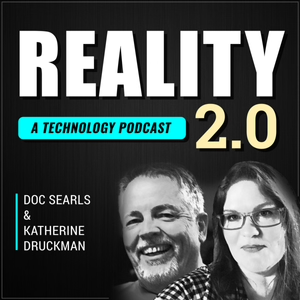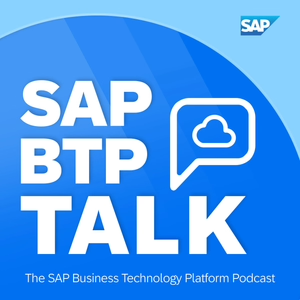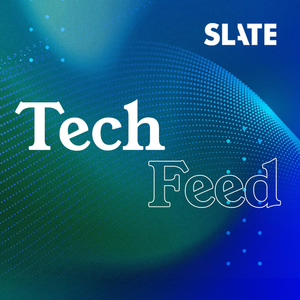
Episode 116: The state of the CMS vs Silos
06/24/22 • 53 min
Tune in to our new episode! Katherine Druckman and Doc Searls talk to Adam Bergstein about the evolution of CMSes, the current landscape, and how they fit in with today’s siloed web.
Site/Blog/Newsletter
FaceBook
Twitter
YouTube
Mastodon
Special Guest: Adam Bergstein.
Links:
- DrupalCon 2022 Recap | Nerdstein — While the CMS and DXP framework space is exploding, Drupal’s adoption numbers are trending down overall. While the talk covers this in greater depth, there were a few primary reasons my research uncovered: A heavy focus on an extensible, ambitious development framework de-emphasized builders and adopters who want low/no-code solutions and are concerned with time-to-value Frameworks are positioned for an enterprise market, where extensibility is critical to business success. Adoption is favoring tools that have more SaaS-based delivery (including products that deliver Wordpress) because they address SMB needs: faster time-to-value, common everyday features, usability over extensibility, no-code, and no/low maintenance offerings.
- Evaluating the Landscape of Drupal Competition
- Time for THEM to agree to OUR terms | by Doc Searls | Medium — We can do for customers what Creative Commons does for artists: give them terms they can offer — and be can read and agreed to by lawyers, ordinary folks, and their machines. And then we can watch “free market” come to mean what it says, and not just “your choice of captor.”
- Doc Searls on Twitter: "Remarkable and surprising visualization on @Reddit: https://t.co/86j1FNIk0Z" / Twitter
- Home | Simplytest — simplytest.me helps you to find the module, theme or distribution that fits your needs. It provides sandbox environments for testing the functionality of any project before even downloading it.
- IEEE P7012 - Machine Readable Privacy Terms Working Group - IEEE P7012 Working Group — The standard identifies/addresses the manner in which personal privacy terms are proffered and how they can be read and agreed to by machines.
Tune in to our new episode! Katherine Druckman and Doc Searls talk to Adam Bergstein about the evolution of CMSes, the current landscape, and how they fit in with today’s siloed web.
Site/Blog/Newsletter
FaceBook
Twitter
YouTube
Mastodon
Special Guest: Adam Bergstein.
Links:
- DrupalCon 2022 Recap | Nerdstein — While the CMS and DXP framework space is exploding, Drupal’s adoption numbers are trending down overall. While the talk covers this in greater depth, there were a few primary reasons my research uncovered: A heavy focus on an extensible, ambitious development framework de-emphasized builders and adopters who want low/no-code solutions and are concerned with time-to-value Frameworks are positioned for an enterprise market, where extensibility is critical to business success. Adoption is favoring tools that have more SaaS-based delivery (including products that deliver Wordpress) because they address SMB needs: faster time-to-value, common everyday features, usability over extensibility, no-code, and no/low maintenance offerings.
- Evaluating the Landscape of Drupal Competition
- Time for THEM to agree to OUR terms | by Doc Searls | Medium — We can do for customers what Creative Commons does for artists: give them terms they can offer — and be can read and agreed to by lawyers, ordinary folks, and their machines. And then we can watch “free market” come to mean what it says, and not just “your choice of captor.”
- Doc Searls on Twitter: "Remarkable and surprising visualization on @Reddit: https://t.co/86j1FNIk0Z" / Twitter
- Home | Simplytest — simplytest.me helps you to find the module, theme or distribution that fits your needs. It provides sandbox environments for testing the functionality of any project before even downloading it.
- IEEE P7012 - Machine Readable Privacy Terms Working Group - IEEE P7012 Working Group — The standard identifies/addresses the manner in which personal privacy terms are proffered and how they can be read and agreed to by machines.
Previous Episode

Episode 115: Geeks in Space
Katherine Druckman and Doc Searls talk to Paul Bailey of Cognitive Space about open source code, aerospace engineering, managing satellites, and the space shuttle! Listen to the end for your next weekend project.
Site/Blog/Newsletter
FaceBook
Twitter
YouTube
Mastodon
Special Guest: Paul Bailey .
Links:
- Cognitive Space — Access the full potential of your space resources with our next-generation machine intelligence platform.
- Geospatial Intelligence | Real Time | BlackSky | SmallSat Constellations — BlackSky is Defining the Category of Real-Time Geospatial Intelligence
- Heavens-Above
- Space-Track.Org — Space-Track.org promotes space flight safety, protection of the space environment and the peaceful use of space worldwide by sharing space situational awareness services and information with U.S. and international satellite owners/operators, academia and other entities.
- Aqua Earth-observing satellite mission | Aqua Project Science — Aqua, Latin for water, is a NASA Earth Science satellite mission named for the large amount of information that the mission is collecting about the Earth's water cycle, including evaporation from the oceans, water vapor in the atmosphere, clouds, precipitation, soil moisture, sea ice, land ice, and snow cover on the land and ice. Additional variables also being measured by Aqua include radiative energy fluxes, aerosols, vegetation cover on the land, phytoplankton and dissolved organic matter in the oceans, and air, land, and water temperatures.
- MODIS/VIIRS Land Product Subsets — These MODIS/VIIRS Subsetting and Visualization services provide user-defined subsets of selected MODIS and VIIRS Land Products at a scale useful for field researchers in easy-to-use formats and are offered in collaboration with the Land Processes DAAC.
- Bobiverse Series by Dennis E. Taylor — Bobiverse Series
Next Episode

Episode 117: Thrivacy
Doc Searls and Katherine Druckman talk to Gordon Jones and Erica Barnette about Thrivacy, their new digital wallet for private, verifiable credentials.
Site/Blog/Newsletter
FaceBook
Twitter
YouTube
Mastodon
Special Guests: Erica Barnette and Gordon Jones.
Links:
- Understanding DIDComm. A cross-community effort to standardize... | by Kaliya-IdentityWoman | Decentralized Identity Foundation | Medium — If you are reading this, you probably know already what Decentralized Identifiers (DID) are: they are “identifiers” or addresses which can be queried to return some information about the subject represented. The addresses take the form of a long, opaque “string” (a long block of letters and numbers, in this case of a fixed length), and the DID “documents” that get returned when they are queried contain some cryptographic key material and, depending on the particularities of the returning system, maybe a few other pieces of information or addresses.
- Decentralized identifier - Wikipedia — Decentralized identifiers are a type of identifier that enables a verifiable, decentralized digital identity.[1][2] They are an important component of decentralized web applications.
If you like this episode you’ll love
Episode Comments
Generate a badge
Get a badge for your website that links back to this episode
<a href="https://goodpods.com/podcasts/reality-20-328429/episode-116-the-state-of-the-cms-vs-silos-47914996"> <img src="https://storage.googleapis.com/goodpods-images-bucket/badges/generic-badge-1.svg" alt="listen to episode 116: the state of the cms vs silos on goodpods" style="width: 225px" /> </a>
Copy




